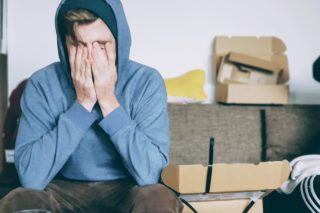Common Causes of Drug Relapse
It is essential to understand the various roots of a relapse since it can help you understand why it has occurred, to begin with. There are many potential causes of relapse, which will be discussed below.
People take drugs because of different reasons. A person might think about how difficult life is without drugs and then start using them again. This does not mean that they do not deserve the good things in life. There may be specific triggers associated with substance use disorder. If you do not identify and deal with these triggers, they can cause problems if you encounter them while in recovery.
For example, if you used cocaine at parties and the people you were with led to your relapse, this needs to be addressed. Of course, you can avoid these certain situations or limit contact with the specific people involved to prevent a full-blown relapse from occurring. Still, it’s also possible that working on your self-esteem and independence could help as well.
Boredom and lack of activities in life can be significant causes of drug relapse. If you are not actively involved with things that give your life meaning, then there may be the temptation to escape or cope through drugs once again.
For instance, you used marijuana because it helped reduce anxiety when faced with difficult social situations. But if you are now in a place where you feel confident enough to interact with people without it, then there is no longer any reason for using marijuana. However, if this isn’t the case and you don’t have anything else which can help relieve social anxiety while sober, drug use may be more likely to reassert itself.
Negative emotions such as depression or hopelessness may also drive you to drug abuse and easily lead to a relapse. Again, this is because drugs are often used as coping mechanisms at first. The person may try to deal with complicated feelings by using drugs or alcohol rather than face their problems head on.
Once again, this means that if there’s no way for you to cope or deal with these emotions without using drugs, then you may be more likely to use them again. Therefore, it’s often a good idea for those in recovery to find healthy and productive ways of coping with difficult emotions, as this can help prevent relapse from occurring down the line.
Reasons People Abuse Drugs
It is crucial to understand why people abuse and become addicted to drugs. This will help eliminate and lower the chances of a relapse occurring at all. Most studies indicate that the reasons why people take drugs are different, but they share many similarities.
Here is a list of some significant causes for drug abuse:
- Escape from emotional pain
- Peer pressure
- Family history
- Loneliness
- Family history and genetics
- Recreational experimentation
- Stress
- Trauma
- Pain from physical injury
It may not be easy to anticipate or prevent these causes in the future, but it is important to monitor one’s behavior and thoughts. For example, if you feel lonely because your friends have started spending time with other people, meeting new people could remedy this problem without using drugs as a crutch anymore.
What Can Be Done After Relapse?
Because there are so many reasons drug relapses happen, they cannot all receive the same treatment. The drug rehab next steps will vary. However, some things may benefit everyone trying to overcome addiction.
There are no guarantees when overcoming an addiction. Anyone who tells you otherwise does not understand how difficult maintaining sobriety is. Unfortunately, there are no fast routes or magic solutions to drug addiction, and relapse can occur even when someone has been clean for years in the past.
However, with some hard work and dedication, it may be possible to prevent a full-blown return to active addiction by identifying potential triggers before they become too much of an issue. In addition, recent statistics from SAMHSA demonstrate that many people who experience a relapse remain clean and sober for good. This should be viewed as an encouraging sign.
Next Steps After a Relapse
Here are the steps you should take if you have recently relapsed and want to stop using drugs for good:
Step One: Acceptance
Acknowledge that this relapse does not define you as a person, so there is no need to give up on yourself. Remember, if you have just relapsed, it is likely, someone else has too. Recovery is never easy but don’t be too hard on yourself and know that you’ll get back on track again.
Step Two: Speak Up
If you are in the emergency room or hospital because of your addiction, tell your doctor about your current drug use so they can provide appropriate treatment options. If you have legal charges, call the court and ask about getting rehab instead of incarceration or jail time so you can receive help for both your addiction and underlying mental illness(es).
Step Three: Therapy
Seek therapy with an addiction specialist who specializes in treating co-occurring mental illnesses like depression or anxiety. Attend 12-step meetings such as Alcoholics Anonymous (AA) or Narcotics Anonymous (NA). If you are not already seeing a therapist, consider talking to one about your mental health issues since they will probably play a role in helping you get back on track.
Step Four: Know Your Triggers
Consider speaking with an outpatient therapist to develop coping strategies that will work best for you when trigger situations arise. Make a list of all your triggers and what you can do to avoid them or manage them when they arise. The list will be of great assistance in finding your ground when the worst happens.
Step Five: Avoid Enablers
Please stay away from people, places, and things that make it difficult for you to stay sober. Remember why you started recovering in the first place. What was it about life that made you want to stop using it again? Also, remind yourself daily why this relapse was a bump in the road and not an actual end to your recovery journey.
Step Six: Find Alternative Coping Mechanisms
If you are using drugs to avoid negative emotions, remember that your feelings are not permanent, so there is no need to rely on substances as a way of coping.
Step Seven: Get Professional Help
If you want to stop using drugs for good, it’s time to take your recovery seriously and seek the help of a professional so they can guide you through this relapse in a healthy way. If your addiction is severe, find a detox center that offers medical supervision throughout the withdrawal process, so you don’t have to go through it alone.
Step Eight: Do Not Isolate Yourself
It might be challenging at first but try not to isolate yourself when you’re feeling this way. Reach out to those who can help you through these tough times. Always remember that there’s no shame in asking for help. No one makes an addiction recovery on their own, and there is nothing to be ashamed of when you relapse.
Step Nine: Act Fast
Seek help now rather than waiting until things get worse. If this was your last straw, it means that the time for change has come, so take action before it’s too late and ask for help in getting better. Remember that relapsing doesn’t mean that recovery is over and there is no hope for living a sober life. You can always get back up again and start fresh, so don’t lose sight of the person you are becoming now.
Step Ten: Stay Positive
If you have just relapsed after all this time in recovery, try not to stress too much about it. Relapse isn’t uncommon, but the most important thing is not to give up on yourself or your recovery. If you relapse, don’t be too hard on yourself and consider it part of your journey to recovery.
Offering Addiction Support to a Friend or Loved One
When we understand why people become addicted to drugs, it is easier to find solutions and prevent drug abuse. People need psychological help and support from their family members or friends when they recover from addiction. We can offer them our support so that they don’t feel alone. If you know somebody who has a drug abuse problem, you should not ignore it.
It can be constructive if members of the family or friends try to understand what the person is going through and offer their support by accompanying them during these challenging times. You need to encourage your loved ones every day to quit drug use.
Drug abuse is a serious problem that can destroy people’s lives if they do not receive the correct treatment or therapies in time. Understanding why people become addicted to drugs makes it easy to offer them support and loving care to improve their lives after quitting substance use. Addicts need help, not punishment and stigma.
How to Prevent Another Relapse
Once your treatment is over, continue with therapy or counseling sessions so that you can ensure sobriety stays intact through any future potential relapses. In addition, this will provide you with the structure and support that you may need to stay clean.
Stay active by taking up a new hobby or interest, join your local community center, where they offer various activities, including yoga, sports leagues, or other exercise groups. Being around people who are not using drugs will make it easier for you to resist any temptations of relapse.
After you have had your relapse, it is crucial to take the time you need to recover. Do not put pressure on yourself to get better right away or within a certain amount of time because this can lead to even more stress and anxiety, which could cause another relapse later down the road.
Addiction recovery is a lifelong journey, and every person’s path to sobriety will be different. Remember, for recovery after a relapse, the most important thing is getting back up and continuing with the journey. You may need more time in rehab than you initially thought it would take for your treatment program to work, but with determination and courage, you will succeed and become sober again.
If you have just relapsed, it’s time to take your recovery seriously and seek professional help from a rehab center or addiction specialist as soon as possible. The faster you act, the better the chances of getting your life together. Contact us today for more info on how we can help you or your loved one beat addiction and get their life back on track.
Recovery is a lifelong journey, not a quick fix.






